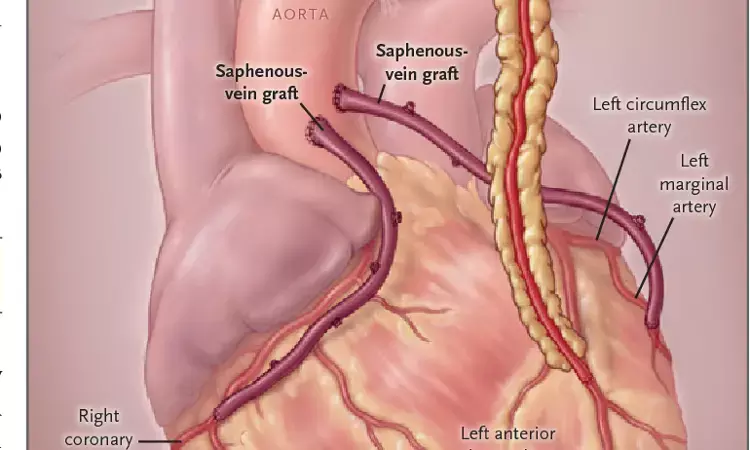- Home
- Medical news & Guidelines
- Anesthesiology
- Cardiology and CTVS
- Critical Care
- Dentistry
- Dermatology
- Diabetes and Endocrinology
- ENT
- Gastroenterology
- Medicine
- Nephrology
- Neurology
- Obstretics-Gynaecology
- Oncology
- Ophthalmology
- Orthopaedics
- Pediatrics-Neonatology
- Psychiatry
- Pulmonology
- Radiology
- Surgery
- Urology
- Laboratory Medicine
- Diet
- Nursing
- Paramedical
- Physiotherapy
- Health news
- Fact Check
- Bone Health Fact Check
- Brain Health Fact Check
- Cancer Related Fact Check
- Child Care Fact Check
- Dental and oral health fact check
- Diabetes and metabolic health fact check
- Diet and Nutrition Fact Check
- Eye and ENT Care Fact Check
- Fitness fact check
- Gut health fact check
- Heart health fact check
- Kidney health fact check
- Medical education fact check
- Men's health fact check
- Respiratory fact check
- Skin and hair care fact check
- Vaccine and Immunization fact check
- Women's health fact check
- AYUSH
- State News
- Andaman and Nicobar Islands
- Andhra Pradesh
- Arunachal Pradesh
- Assam
- Bihar
- Chandigarh
- Chattisgarh
- Dadra and Nagar Haveli
- Daman and Diu
- Delhi
- Goa
- Gujarat
- Haryana
- Himachal Pradesh
- Jammu & Kashmir
- Jharkhand
- Karnataka
- Kerala
- Ladakh
- Lakshadweep
- Madhya Pradesh
- Maharashtra
- Manipur
- Meghalaya
- Mizoram
- Nagaland
- Odisha
- Puducherry
- Punjab
- Rajasthan
- Sikkim
- Tamil Nadu
- Telangana
- Tripura
- Uttar Pradesh
- Uttrakhand
- West Bengal
- Medical Education
- Industry
Skeletonized vs Pedicled Internal Thoracic Artery Harvesting Techniques: Long-term Clinical Outcomes

The use of the internal thoracic artery (ITA) graft to left anterior descending artery is the cornerstone of the CABG. The ITA can be harvested as a pedicled or as a skeletonized conduit. Pedicled graft is harvested together with the surrounding fat, the satellite veins, and part of the endothoracic fascia, while with the skeletonized graft, only the artery is separated from the chest wall.
The skeletonized technique though technically more complex and time consuming, it has been associated with clinical benefits, importantly a reduction in the risk of postoperative sternal wound complications.
However, recently, a post hoc analysis of the COMPASS trial reported a significantly higher rate of graft occlusion and adverse cardiovascular events for patients who received skeletonized vs pedicled ITAs. So, Mario Gaudino et.al, conducted this study to compare the long-term clinical outcomes of skeletonized and pedicled ITA for CABG.
The Arterial Revascularization Trial was a 2-group, multicenter trial comparing the use of a bilateral ITA vs a single ITA for CABG at 10 years. Patients in the ART trial were stratified by ITA harvesting technique: skeletonized vs pedicled and the 10-year clinical outcomes were compared. The primary outcome was all-cause mortality. The secondary outcomes were a composite of major adverse cardiac events (MACE) including all-cause mortality,myocardial infarction, and repeated revascularization and a composite including MACE and sternal wound complication.
Findings of this study are
1) all-cause mortality was not significantly different between the pedicled and skeletonized groups.
2) long-term risks of the secondary outcomes were significantly higher in the skeletonized group compared with the pedicled group.
3) The difference was not seen when considering only patients operated on by surgeons who enrolled 51 patients or more in the trial.
Authors concluded that "the rate of adverse cardiovascular events was consistently higher in the
skeletonized group and the difference was associated with surgeon-related factors."
Source:JAMA Cardiology; doi:10.1001/jamacardio.2021.3866
MBBS, M. D. Respiratory Medicine
Dr Sravan Kumar V, completed his M. B. B. S from SRMC, Nandyal and M. D. in Respiratory Medicine from the JSS Medical College, Mysore. After completing MD. he worked as Senior resident in Kasturba Hospital, Manipal. He is actively involved in various research activities of the department. Currently he is working as senior resident in Mallareddy medical college for women, Hyderabad. He can be contacted at editorial@medicaldialogues.in.
Dr Kamal Kant Kohli-MBBS, DTCD- a chest specialist with more than 30 years of practice and a flair for writing clinical articles, Dr Kamal Kant Kohli joined Medical Dialogues as a Chief Editor of Medical News. Besides writing articles, as an editor, he proofreads and verifies all the medical content published on Medical Dialogues including those coming from journals, studies,medical conferences,guidelines etc. Email: drkohli@medicaldialogues.in. Contact no. 011-43720751


